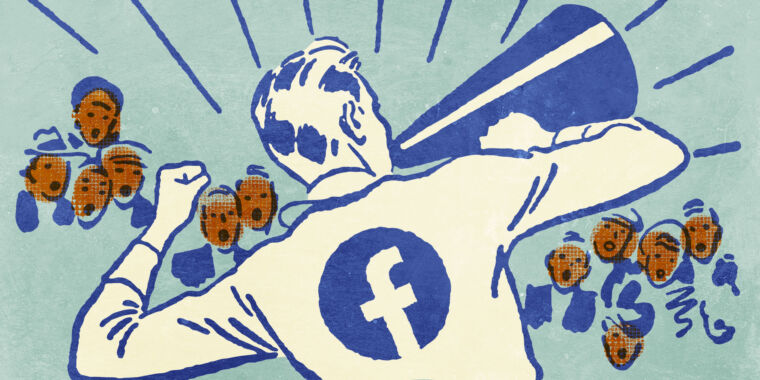But they do fuel polarization in general. I’m sure of it.
Actually one of the conclusions from both the Science and Nature articles were that they mostly fuel far right radicalisation, not so much polarisation (which implies both ends of the political spectrum). Which I guess means leftists are generally either more capable of spotting misinformation or less inclined to act on it.
Also, there’s not a large, well-funded far-left movement in the US fighting to radicalize people.
All I’ve got to offer are unionisation pamphlets and a brick.
Which I guess means leftists are generally either more capable of spotting misinformation or less inclined to act on it.
Or are less likely to be on Facebook in general.
The studies were percentage based, so yes, volume of posts could play an active role but likely more from an “activity” amount vs “presence”.
So this confirms all the studies and adages of conservative voters being less intelligent, more subject to scams and fraud, and less accepting of social norms.
You’ve got studies suggesting that conservatives are less accepting of social norms?
If it only drives the far-right, does that mean Facebook contributed shifting in window of discourse? (https://en.m.wikipedia.org/wiki/Overton_window)
Not radicalization, just polarization, they are different. But overall, yes.
I’ve watched someone I know who only gets their news through Facebook descend into qdom over the last 5 years. Whenever I hear about a new thing conservatives are doing or saying, I can be sure that person will be doing or saying it within a week… which then feeds right back into Facebook for others.
Thanks for the confirmation. I bet they don’t even notice it happening. Though this could happen to anyone on any side of the spectrum. It’s sad that this is what the internet has become.
“Yes” really isn’t complicated.
Sure it is. Is it Meta’s algorithm, is it user reach, is it paid ads, is it channels, is it memes, is it leaning, is it…
Meta is participating in a pretty big study with actual researchers here. I’m no Meta fan, and this is partly for PR I’m sure, but this is a really good thing that more social media companies should do.
Yeah, doesn’t seem complicated to me at all. Their algorithm is programmed to keep people angry, engaged, and convinced 100% that their opinion is right. (no matter what that opinion is.)
Keeps people clicking on shitty ads and buying stupid crap.
The US 2020 Facebook and Instagram Election Study is a joint collaboration between a group of independent external academics from several institutions and Meta
Now we have the first results from this unusual collaboration, detailed in four separate papers—the first round of over a dozen studies stemming from the project.
“We also find that popular proposals to change social media algorithms did not sway political attitudes.”
“In other words, pages and groups contribute much more to segregation than users,”
Finally, the vast majority of political news that Meta’s third-party fact-checker program rated as false was viewed by conservatives, compared to liberals. That said, those false ratings amounted to a mere 0.2 percent, on average, of the full volume of content on Facebook. And political news in general accounts for just 3 percent of all posts shared on Facebook, so it’s not even remotely the most popular type of content.
This last bit is key. This means (up to) 15% of popitical posts werr misinformation (some nonpolitical), mostly viewed by conservatives. They do not state which way this information leans.
Or maybe, we know how they get people, but how do we de-radicalize people on a wider scale?







